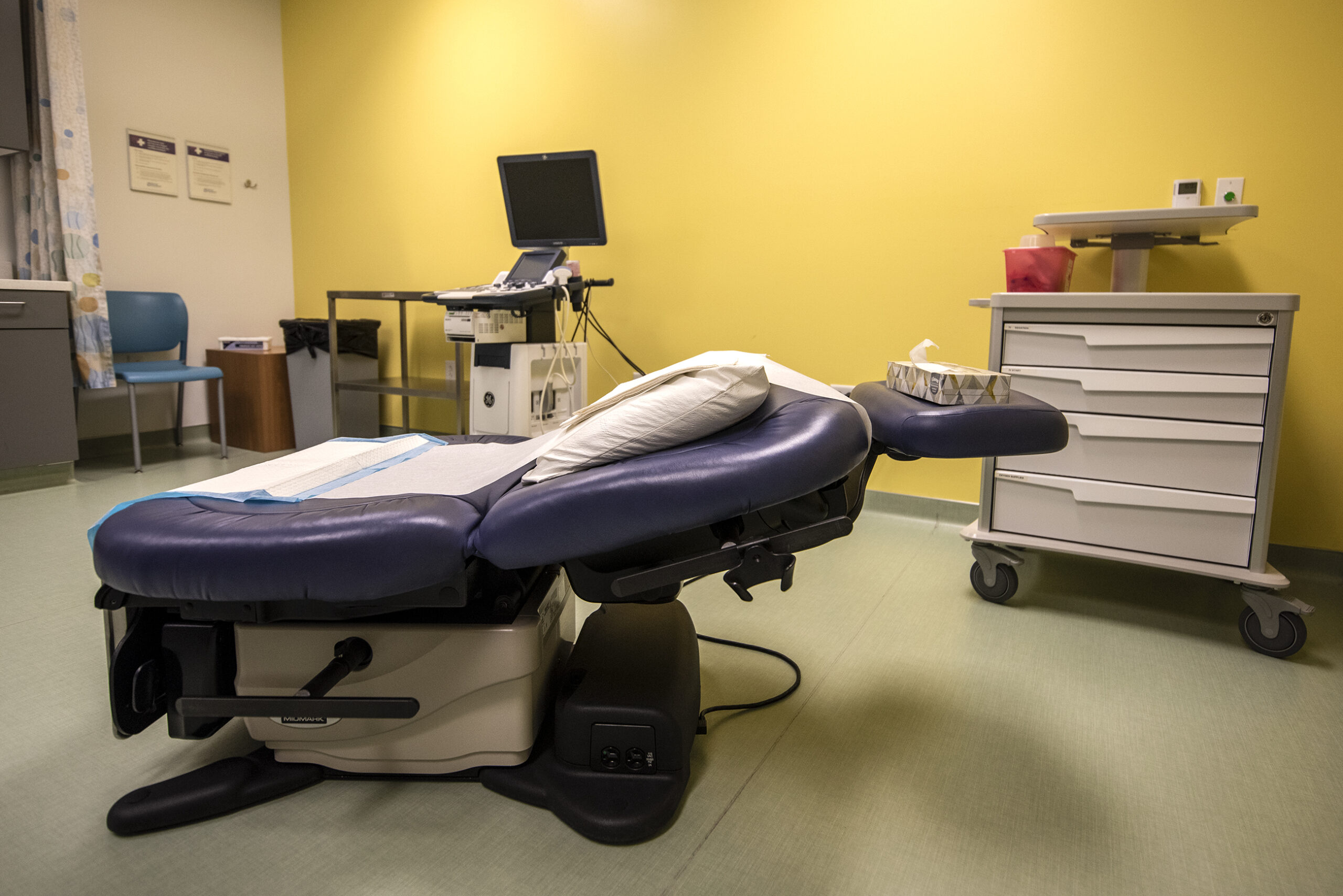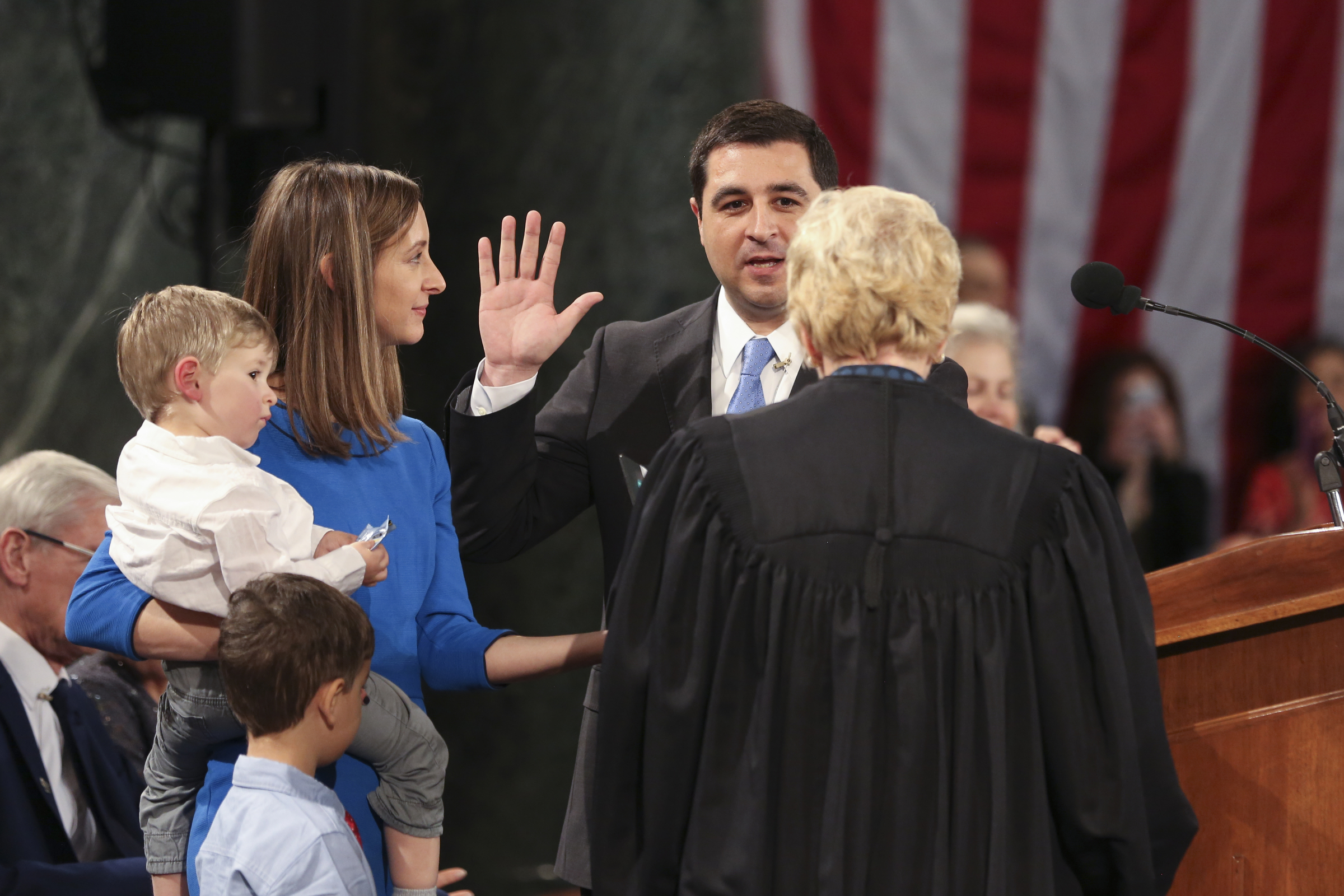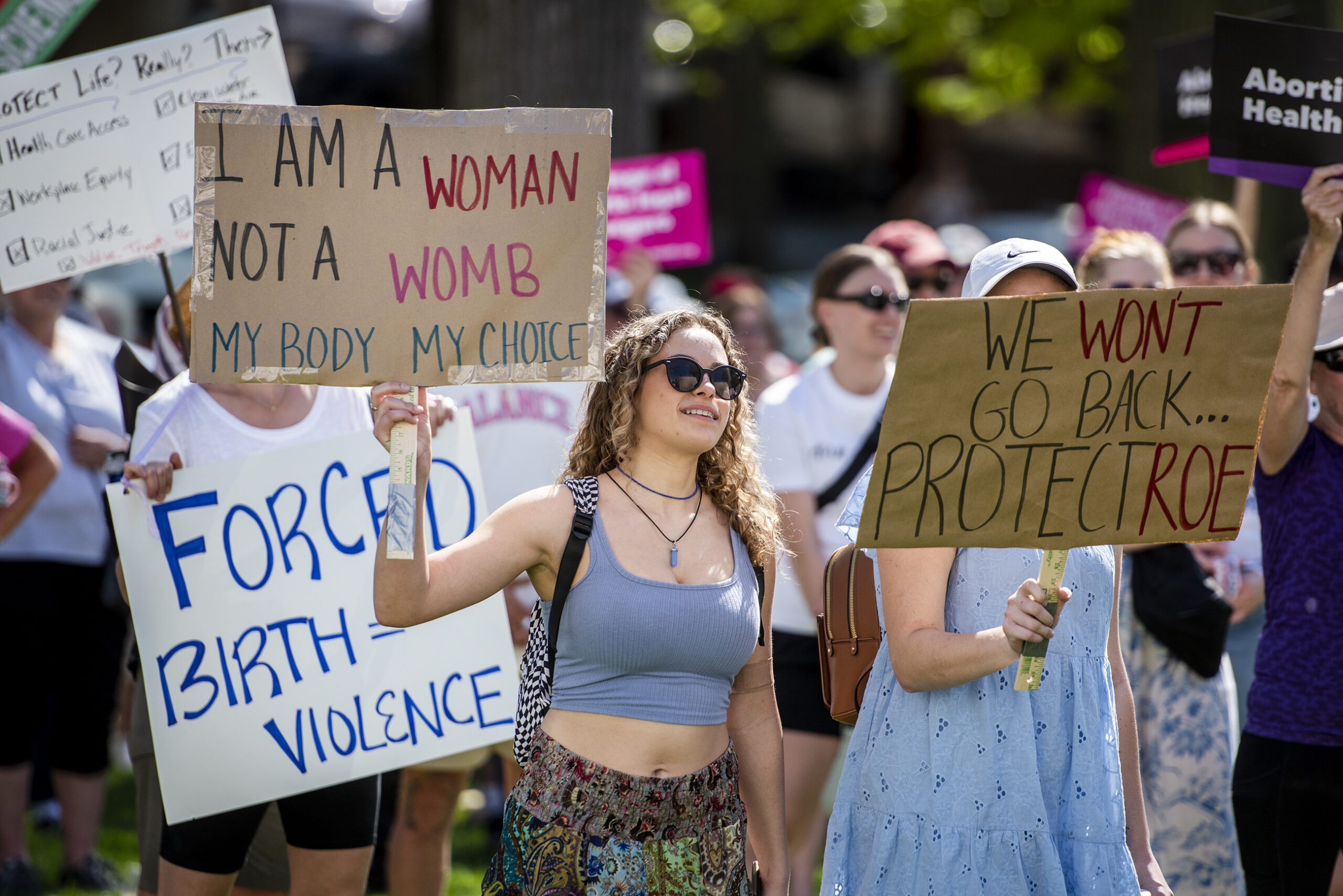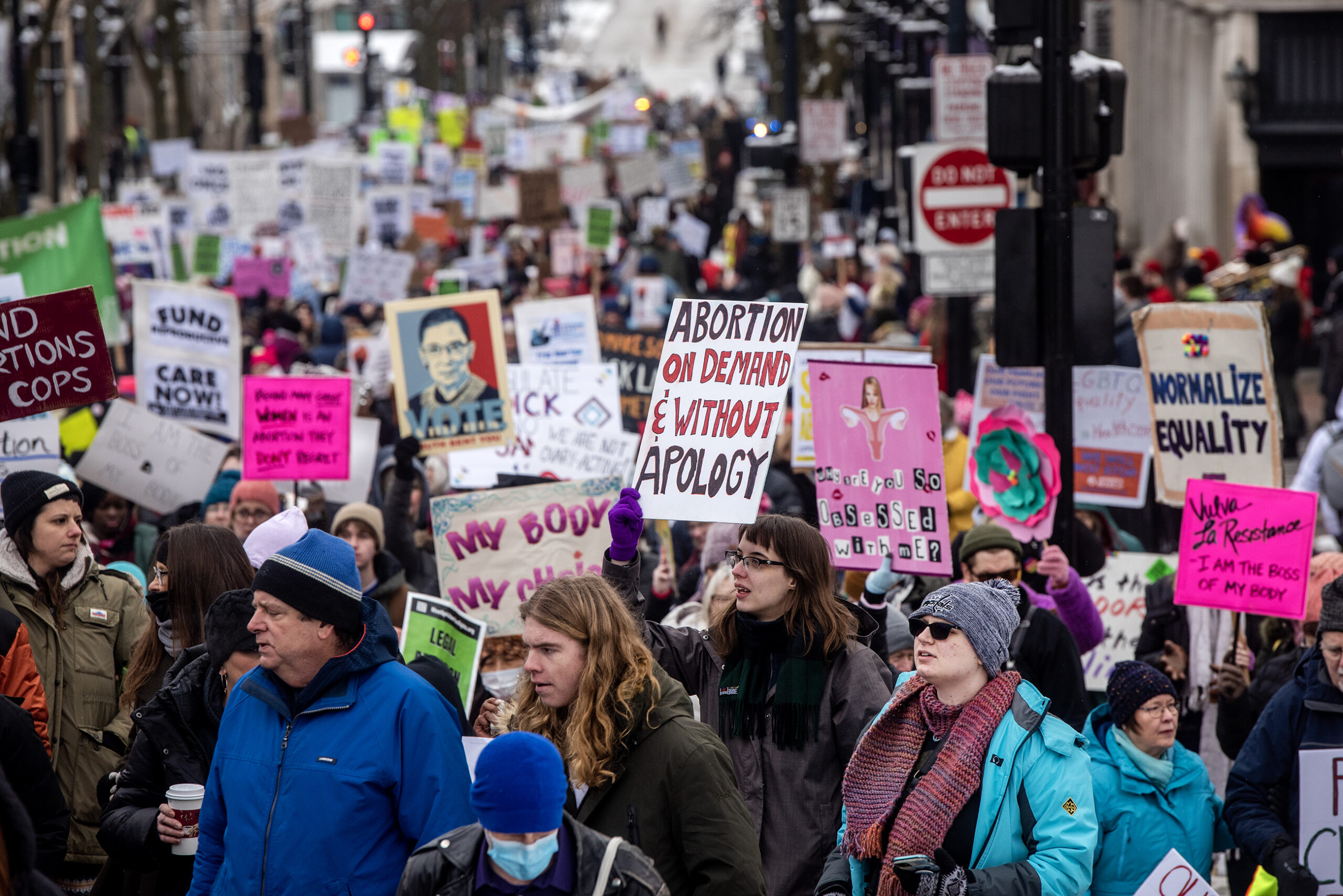Planned Parenthood of Wisconsin announced Thursday it will resume abortion services at two of its clinics.
The organization immediately stopped providing abortions after the U.S. Supreme Court overturned Roe v. Wade in the summer of 2022, citing a state abortion ban first written in 1849 that was never taken off the books.
Since then, virtually no legal abortions have taken place in the state. Patients and providers alike have been crossing state lines.
Stay informed on the latest news
Sign up for WPR’s email newsletter.
According to a press release, abortions will be offered once again at the organization’s Water Street Health Center in Milwaukee and Madison East Health Center.
Abortion services will resume Sept. 18 at the two Planned Parenthood locations, and people seeking appointments can make them immediately.
“With patients and community as our central priority and driving force, we are eager to resume abortion services and provide this essential care to people in our State,” Tanya Atkinson, Planned Parenthood president and CEO, said in a statement.
Planned Parenthood of Wisconsin has maintained that the state’s ban “was not enforceable,” the statement said. But they decided to suspend abortion services after the Dobbs decision “due to the threat of prosecution.”
Now, after a Dane County judge refused to toss out a lawsuit challenging the ban, Planned Parenthood of Wisconsin has decided to start services again.
“In its ruling, the court stated that that Wisconsin Statute 940.04 does not prohibit consensual abortion care,” the statement said.
The July order from Judge Diane Schlipper said the law applies to feticide, or assault and battery that results in the end of a pregnancy, not consensual abortion.
READ MORE: How We Got Here: Abortion in Wisconsin since 1849
At a Thursday press conference, Atkinson said the organization intends to continue performing abortions until a court rules that they can’t.
“We are completely confident that it’s been made clear that the 1849 law does not apply to voluntary abortion,” she said.
Before the Dobbs ruling, there were four clinics in the state that offered abortion. Three, located in Milwaukee, Madison, and Sheboygan, were run by Planned Parenthood. The fourth, Affiliated Medical Services in Milwaukee, is no longer in operation.
Planned Parenthood of Wisconsin previously also offered medication abortions at its clinic in Sheboygan, and they say their intent is to resume services there in the coming weeks.

Democrats celebrate, Republicans denounce Planned Parenthood decision
Gov. Tony Evers celebrated the organization’s decision as a result of his administration’s lawsuit, calling the announcement “critically important news for Wisconsin women and patients across our state” in a press release. Evers said his administration would continue to push to restore reproductive rights in the state.
“I will keep fighting like hell every day until Wisconsinites have the right to make their own healthcare decisions without interference from politicians who don’t know anything about their lives, their family, or their circumstances,” Evers said in the statement.
During a press conference at the State Capitol on Thursday, Senate Minority Leader Melissa Agard, D-Madison, called the announcement “great news” but said lawmakers need to codify protections for abortion care in the state.
When asked if she feels comfortable with Planned Parenthood moving ahead with abortion care despite the ongoing legal battle, Agard said she was. She pointed to voter turnout this spring to elect state Supreme Court Justice Janet Protasiewicz, who voiced her support for reproductive rights ahead of the election, as an example of Wisconsinites’ support for abortion access.
“Frankly, the threats of her impeachment are threats to reproductive freedoms of Wisconsinites, even with this decision that Planned Parenthood has announced,” Agard told reporters.
Republican Assembly Speaker Robin Vos, R-Rochester, called the announcement “presumptive” at a press conference ahead of Thursday’s Assembly session. Vos said challenges to the state’s law are still working their way through the courts and the legislative process.
“It’s one of the things that worries me about the independence of our judiciary,” Vos told reporters. “If Planned Parenthood is so convinced that they are going to win at the state Supreme Court that they are willing to break the law — which the law in the books still is the 1849 statute — it’s just another reminder that some people flout the law whether or not it’s on the books.”
Vos said the issue is “a matter of life and death,” noting he planned to pray for the pregnancies that would be ended because of the push for abortion services.
When asked whether he would support the state Legislature requesting a restraining order to stop Planned Parenthood from resuming services, Vos said he was confident other groups would intervene. He said the role of lawmakers is to find common ground in order to set state law.
“I still support having the Legislature update the 1849 statute to add exceptions for rape and incest, try to change the law on the books,” he said. “I think that’s the way that things should happen. It shouldn’t be through a court, which is supposed to be arbitrating what is and what is not constitutional, not determining laws because things can’t happen.”
Expert says Planned Parenthood’s decision unlikely to impact legal proceedings
Miriam Seifter, professor at the University of Wisconsin Law School, said in an email that although the case in Dane County Circuit Court is not final, the judge’s ruling in July “strongly indicated” what her decision will be.
In the meantime, Seifter said it’s unlikely Planned Parenthood providers who resume abortion care will face prosecution under the 1849 ban.
“The announcement is limited to Madison and Milwaukee, which are not the counties in which some district attorneys expressed interest in prosecuting consensual medical abortions,” she wrote.
Seifter said the organization is not a party to the ongoing lawsuit, so the decision to resume care likely won’t have any impact on the case.
But advocates on both sides of the issue agreed the legal fight over the state’s law is far from over.
The case, originally filed by Democratic state Attorney General Josh Kaul, is still active in Dane County Court. It is largely expected that it will eventually end up before the Wisconsin Supreme Court, which, as of last month, has a new 4-3 liberal majority.
“I’m hopeful we’ll have a final decision from the circuit court before too long, but the litigation process will continue,” Kaul told reporters Thursday. “Because it’s critical that we have no uncertainty about this issue whatsoever.”
Gracie Skogman, legislative director for anti-abortion group Wisconsin Right to Life, said her organization believes the law was clearly written to protect all pregnancies and the issue is headed to the state Supreme Court.
“We’re very devastated to see abortion resuming here in the state, but expect that this will not be the end of this issue,” she said.
Skogman said the decision for Planned Parenthood to go forward with abortion care despite the ongoing legal battle is “another example that Planned Parenthood values profits above the concern for the life of these children and truly for women in Wisconsin.”
Planned Parenthood of Wisconsin is a nonprofit organization.
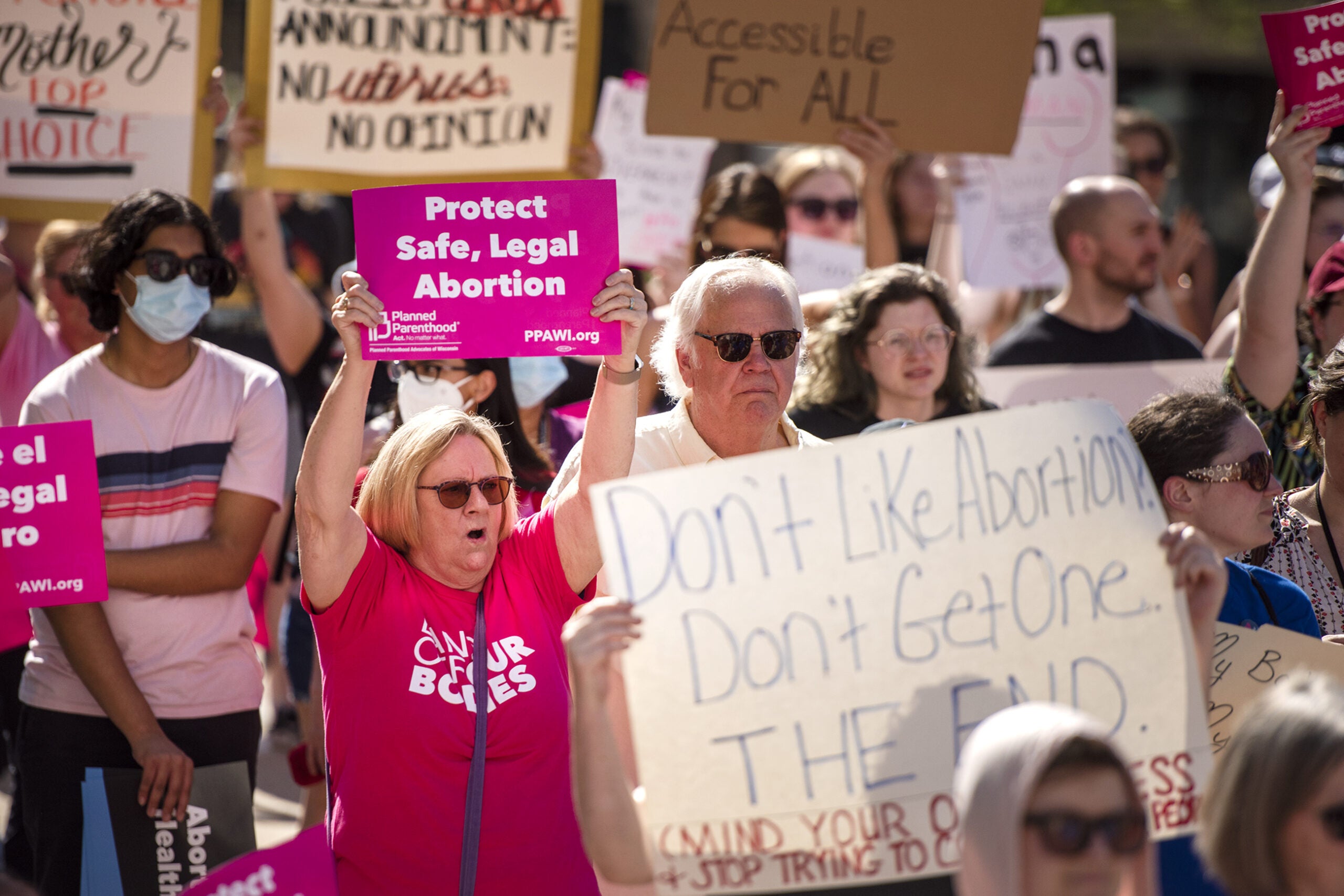
Planned Parenthood will return to pre-Dobbs legal framework
Since last summer, Planned Parenthood of Wisconsin has been sending staff members to work in Illinois clinics. People seeking abortions have also been making their way to states where the procedure has remained legal and available.
Now, Dr. Allie Linton, associate medical director, said the formal partnership with Planned Parenthood of Illinois “has sunset,” and they are no longer sending staff members across state lines. But they are maintaining partnership for facilitation of patient care, she said.
Linton also said that the organization’s capacity for abortion services will not immediately be what it was pre-Dobbs.
“It’s really hard to flip the switch, but we are doing that to the best of our ability,” she said.
Any abortions performed going forward will be subject to a variety of state regulations that existed before the Dobbs decision, Linton said, including a 24-hour waiting period, a ban on all abortions after 20 weeks and a mandatory ultrasound law.
“We have a variety of restrictions in Wisconsin that existed before last summer,” she said. “And those are what we will be reverting to now.”
Wisconsin Public Radio, © Copyright 2025, Board of Regents of the University of Wisconsin System and Wisconsin Educational Communications Board.

